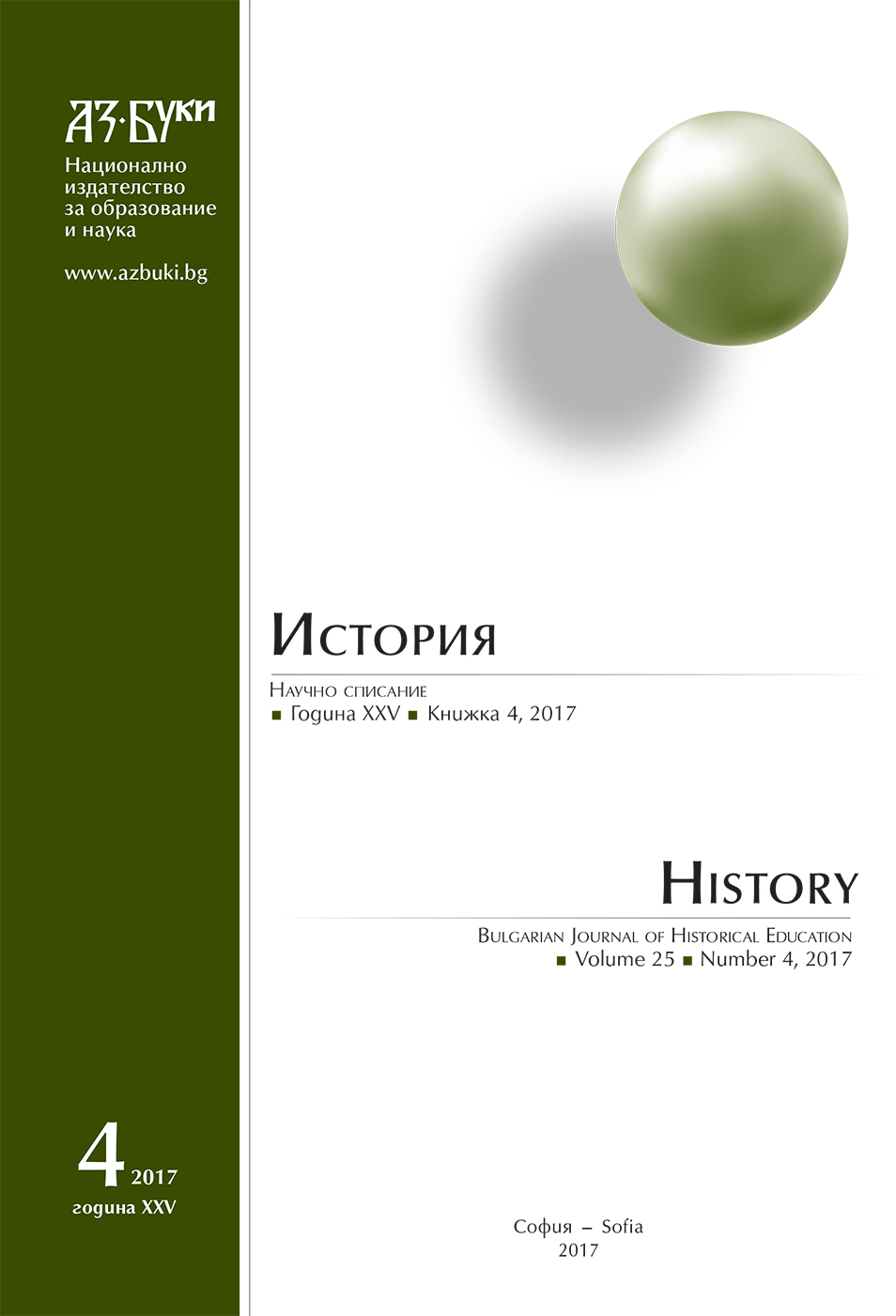
We kindly inform you that, as long as the subject affiliation of our 300.000+ articles is in progress, you might get unsufficient or no results on your third level or second level search. In this case, please broaden your search criteria.

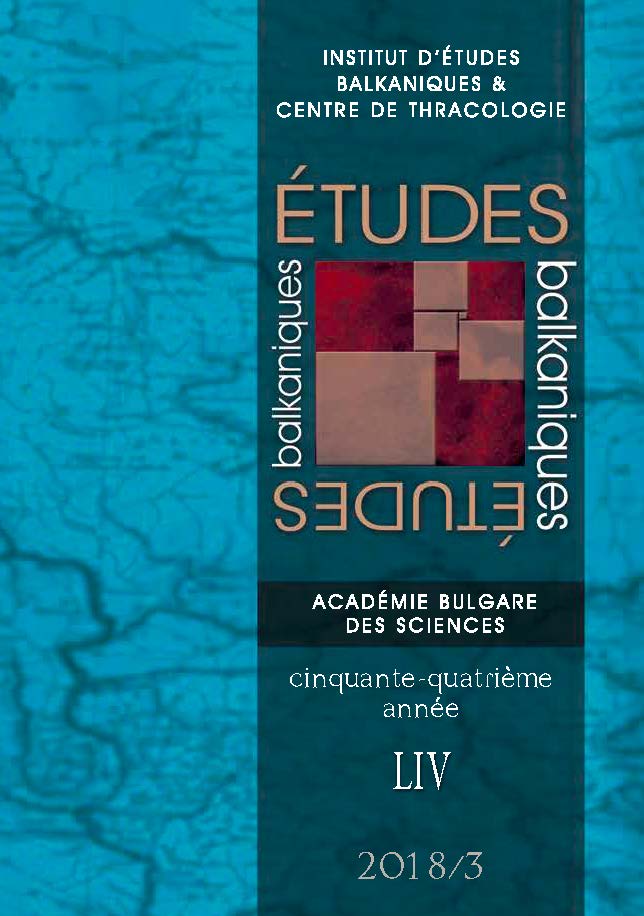
Salonica was the centre of the national idea in the Ottoman Empire, which distinguished it essentially from the cosmopolitan Ottoman cities along the Asia Minor coast. The Bulgarians had a significant role to play in the political and ideological ebullience that had gripped the city in the first decade of the 20th century. Its representatives were among the most prominent proponents of the national, socialist and anarchist idea that inevitably influenced the Jewish community in the city. Even though its Jewish population did not identify itself with the national-liberation aspirations of the Christian population, the proximity of the Balkan nation states and particularly of Bulgaria had a tangible effect on the city and predetermined its fate.
More...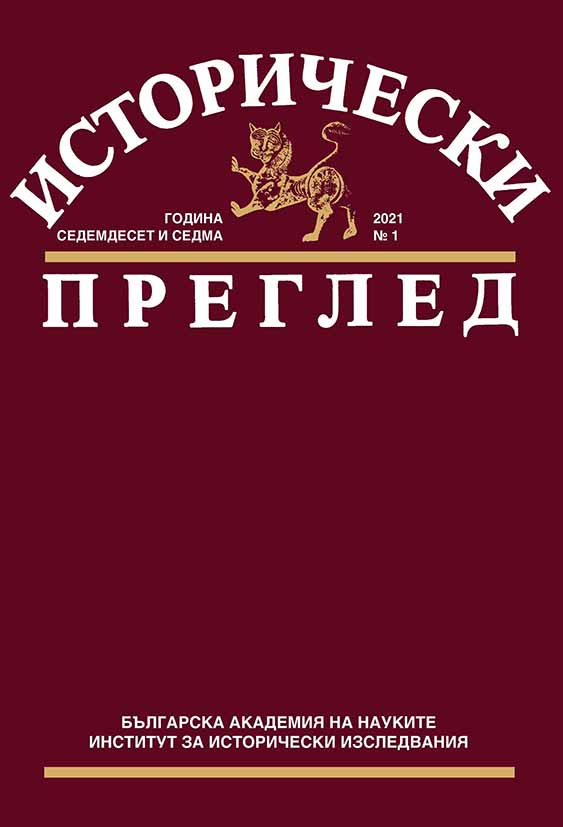
The article tells about the early history of the Bulgarian church in the Romanian town of Braila in the third quarter of the 19th century. In this city at that time there was a large Bulgarian emigrant community, resettled there mainly after the Russo-Turkish war of 1828–1829. It was distinguished by its active economic and socio-cultural activities and in the 1860s turned the city into the cultural capital of the Bulgarian diaspora in Romania. There was a Bulgarian school there, Bulgarian newspapers were published, Bulgarian printing houses functioned; prominent Bulgarian writers, playwrights, publicists such as Dobri Voynikov, Vasil Drumev, Hristo Botev lived and worked in the city for some time… The Bulgarian Literary Society (predecessor of the Bulgarian Academy of Sciences) was founded there (in 1869), a community center and other social and cultural organizations operated, and a fruitful theatrical activity developed. But even in the 1860s, the Bulgarian community still did not have its own church to worship in their native language. The article traces, on the basis of the currently available documentary and other sources, the preparation and implementation of the construction of the Bulgarian Church of the Ascension of Christ in Braila, carried out mainly in the years 1868–1875. This endeavor was guided by the elected church boards, which managed to mobilize for this purpose the spiritual potential and material resources of the Bulgarian community there. The funds for the construction of the temple were raised through voluntary donations and loans, in which representatives of all strata of the Bulgarian diaspora participated: rich merchants and bankers, as well as smaller merchants, craftsmen, innkeepers, gardeners, etc., as well as many activists of the local intelligentsia, active participants in the national liberation movement, etc. Thus, the construction of the Bulgarian church in Braila, which still exists today – a century and a half later, became a real nationwide affair and despite some accompanying negative phenomena, became one of the most positive and successful pages in the history of Bulgarian emigration to Romania.
More...
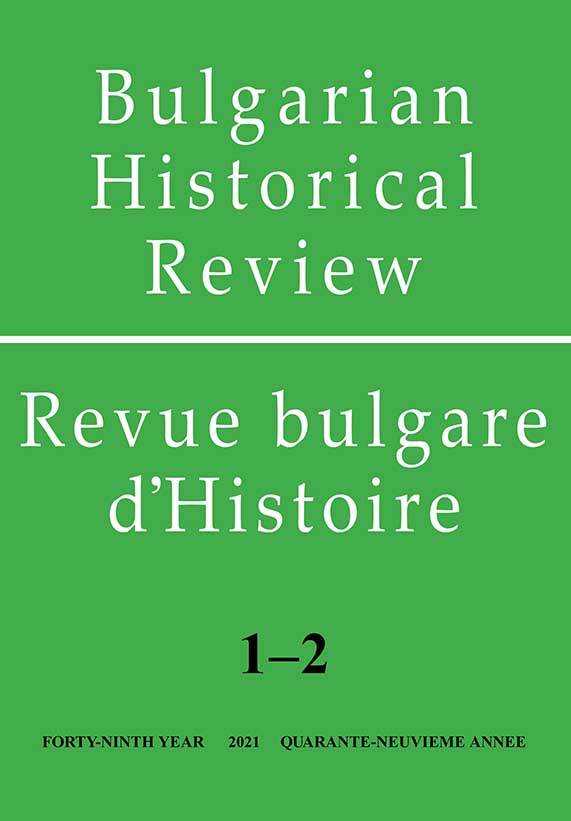
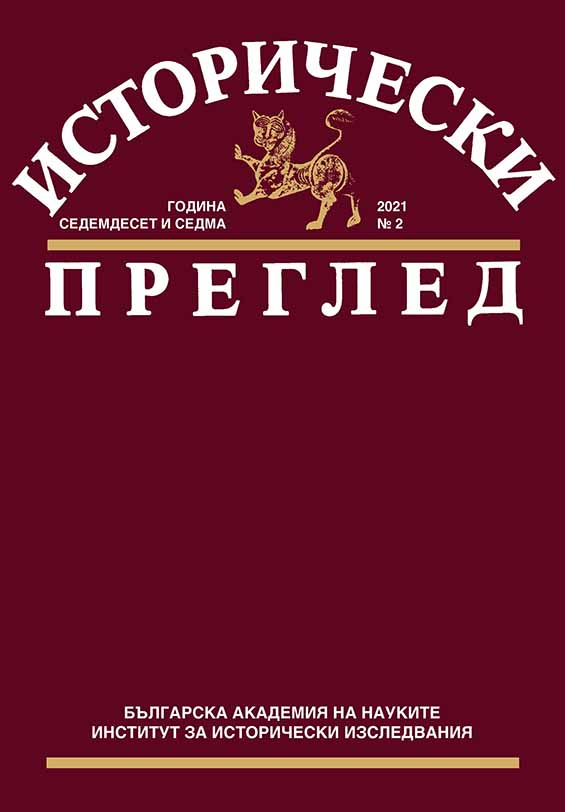
In 1858 Petko R. Slaveykov (1827–1895) was already an influential public figure in his homeland – the regions of Tarnovo and Tryavna. Gradually, it was becoming more and more visible nationally – especially in the field of the church struggle against the Patriarchate of Constantinople and its metropolitans on Bulgarian lands. Slaveykov’s literary endeavors were becoming more and more recognizable. In this context, one of his unpublished and unknown pamphlets is presented and interpreted in the paper. The attribution of the manuscript is based on a wide range of data – archival, biographical, literary. The connection with the other components of the writer’s work is implemented through facts, topics and language specifics. The full text of the manuscript is presented in compliance with the current rules for publishing archival materials from the Revival epoch.
More...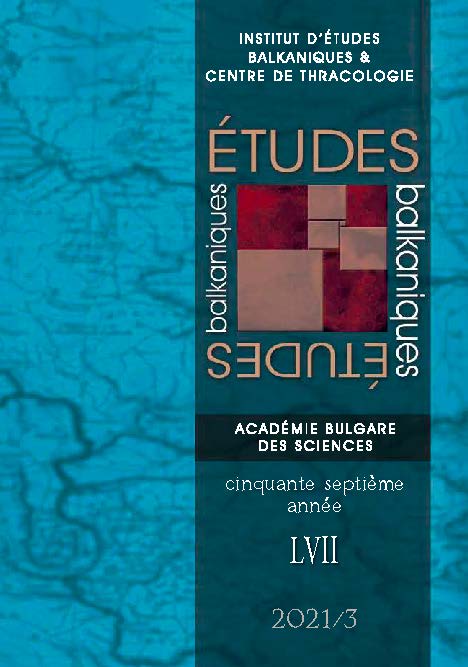
This study looks at bells and bell ringing in the medieval Balkans byfocusing on historical Serbia and Bulgaria. It provides a comprehensive view of the use of bells for religious purposes from the thirteenth century until the early Ottoman period. The evidence examined is organised in two parts; the first one deals with written sources while the second is a catalogue of church bells preserved in the region under study. Dated to the thirteenth, fourteenth and fifteenth century, some of these instruments are recent discoveries while others are not well known among scholars. This is the first time that most extant bells from the region are analysed together, offering the opportunity to trace the development of these artefacts in the Balkans. In a third section the information from written sources and actual bells is discussed in conjunction.
More...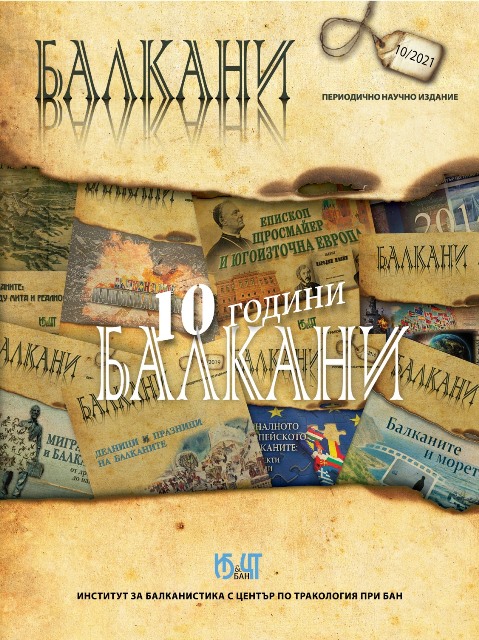
The study is mostly based on the writings of Father Arthur Droulez of Congregation of the Mission. Special attention is paid on his accounts about the Bulgarian Uniates in Macedonia, published recently (1839–1939) in French. The main themes are presented, supplemented by information newly obtained from the private Bulgarian archives.
More...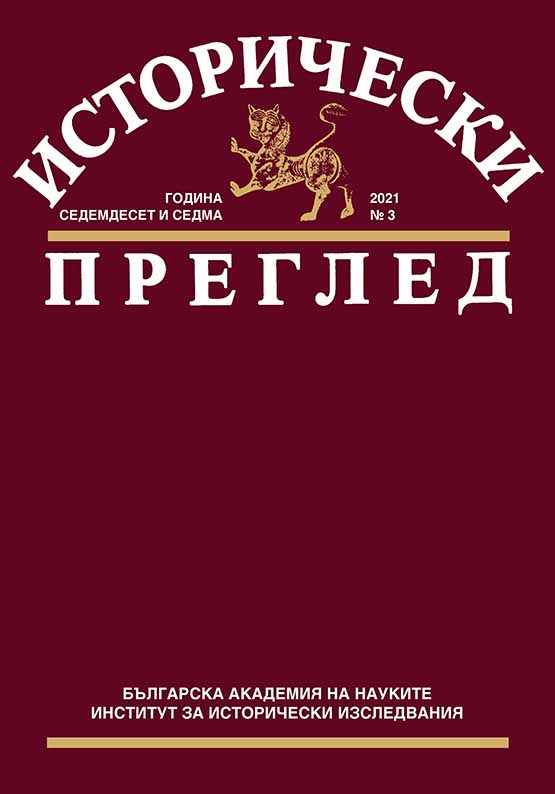
The study focuses on the development of the Bulgarian girls’ education in the historical-geographical region of Macedonia during the Revival, as an important stage in the emancipation of the female sex. It can be noted that the first girls’ schools in the district had a short life due to a number of difficulties in their functioning. It should not be forgotten that in the ethnically diverse Macedonian provinces of the Ottoman Empire, their opening was more an expression of local patriotism and an attempt to overcome Greek influence in cities with a rather mixed population. From the second half of the 19th century Bulgarian girls’ schools were organized in the larger cities largely thanks to the tireless work of the teachers from Sopot Nedelya Petkova and her daughter Stanislava Karaivanova. Although timid at this early stage, the issue of girls’ education involved many women and raised the issue of the women’s movement among Bulgarians in Macedonia.
More...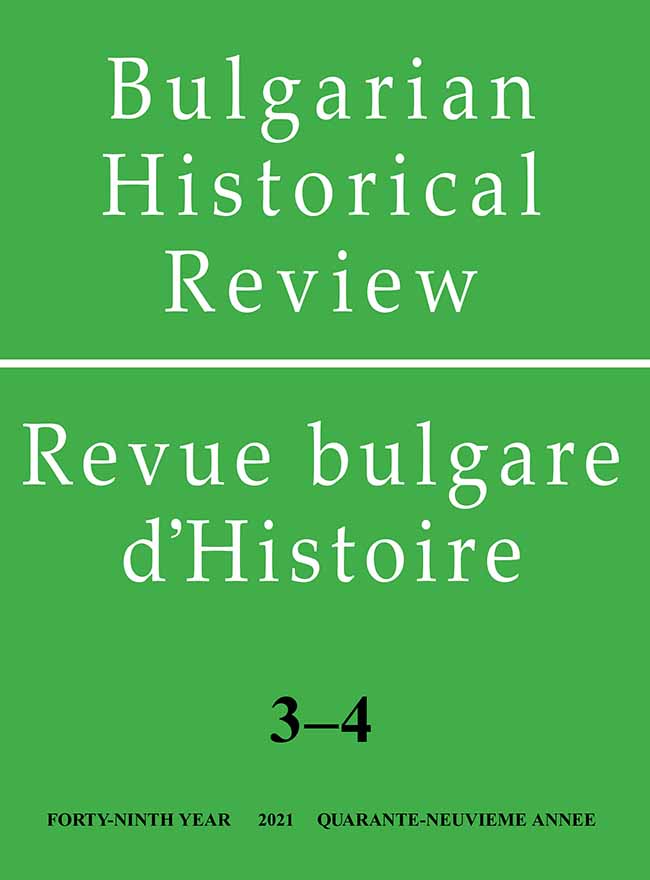
The emergence of the first Catholic parishes in the territory of Kosovo and Metohija is related to the development of mining, mainly in the settlements of German miners Saxons and the colony of traders from the coastal parts of the Serbian medieval state (Cattaro, Dubrovnik, etc.). The significance and influence of these trading colonies has experienced its climax at the time of the Serbian despots, while the question of the spiritual and administrative authority over these parishes reflects the pretensions of certain Catholic ecclesiastical centers to protect the interests and rights in the exercise of their obligations.
More...
This article compares the projects for the initial modernization of education among the Czechs, Slovaks, Vojvodina Serbs and Bulgarians, their conception, initiation and the social factors responsible for their implementation. The role of the clergy for the spread of Enlightenment ideas and the preservation of the literary tradition – a factor common to all peoples – is outlined. The connection between the literacy of the broad strata of the subjugated peoples and the development of the native language is analyzed. The author considers the reform of education in the general context of state policy, noting that while in the Habsburg monarchy it was a governance policy aimed at the general process of modernization of the state, in the Ottoman Empire the central government remained indifferent and the Bulgarian educational project was the work of wealthy patriotic emigration.
More...
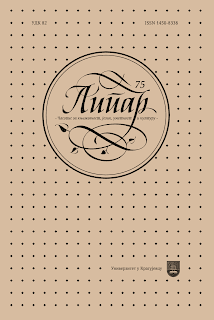
The paper presents the life and work of Eugene of Savoy, a famous military leader at the turn of the 17th and 18th centuries, whose achivements left a mark in the history of numerous countries, from Austria, through Germany, Italy and France, to Serbia. The biography of Prince Eugene has a mutinational, “pan-European” char- acter, bearing in mind that he came from an Italian family (princes of Savoy), that he was raised in the environment of the French royal court, and that he served three Habsburg emperors (Leopold I, Joseph I and Charles VI). Napoleon considered Eugene one of the seven greatest commanders of history.The article contains presentation of young years and military career of Prince Eugene, especially during the Great Turkish war (1683-1699) and after, includin presantation of crucial battles of Zenta (1687), Petrowaradin (1716) and Belgrade (1717). The Prince’s fame was secured with his decisive victory against the Ottomans at the Battle of Zenta in 1697, earning him Europe-wide fame. The Battle of Zenta proved to be the decisive victory in the long war against the Turks. Renewed hostilities against the Ottomans in the Austro-Turkish War consolidated his reputation, with victories at the battles of Petrovaradin (1716), and the decisive encounter at Belgrade (1717). Of all Eugene’s wars this was the one in which he exercised most direct control; it was also a war which, for the most part, Austria fought and won on her own. The war had dispelled the immediate Turkish threat to Hungary and was a triumph for the Empire and for Eugene personally. In the period after the Second World War, during the period of growing popularity of European integration and cooperation, as well as supranational ideas, there was a reinterpretation of the historical role of Eugene Savoy as an archetypal character “pan-European”, “hero of European culture”, “builder of Europe”. The period of the Austro-Turkish wars in which Prince Evgenije participated and his great victories over the Turks had an exceptional influence and significance on the history of the Serbian people (Great Migration 1690). A large number of Serbs also took part in the campaigns and battles led by Eugene of Savoy.
More...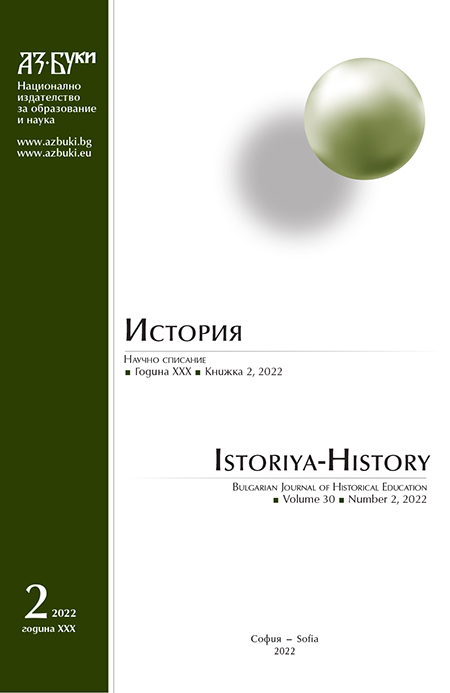

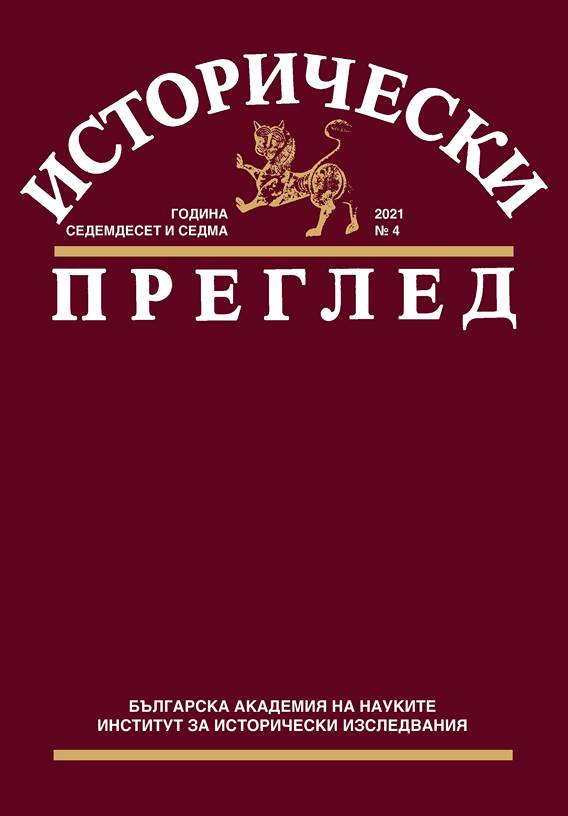
The article is a continuation of a study published in 2012 in the journal “Historical Review” under the same title. Here the author summarizes data on Russian liturgical books delivered to the Bulgarian lands at the request and with the assistance of the Russian Vice Consul in Plovdiv Naiden Gerov. The information was found in the archive fund of N. Gerov in the Bulgarian Historical Archive at the National Library “St. St. Cyril and Methodius” (NBCM–BIA) after the publication of the study, published in 2012.
More...
The proposed article pays attention to a document that provides valuable information in two directions. The first one is related to the Christian moral norms typical for the period of the Bulgarian National Revival. The second direction is related to the public self-organization and charity. The mentioned document is a letter (from 1860) sent by the notables of Tarnovo to their fellow countrymen in Ottoman Bulgaria, and in Romania (Bucharest) in order to help financially and morally their fellow-citizen Mihail Vasilev. He was a guild member (a furrier) and a merchant who became very poor in 1860. Probably the reasons for his pauperization were related to the specific economic and financial situation in the Ottoman Empire after the Crimean War (1853–1856). The negative factors caused by the war forced Mihail to leave the urban setting, and settle down in Romania. It is interesting to note that the spirit of Christian ethical norms (goodness, charity, compassion) influences the content of the whole document. The notables of Tarnovo urged their compatriots in the Bulgarian lands, and in Romania to help the needy and his family (a wife and five daughters). There are also some clues about merchants, their profession and wealth; the role of basic moral principles such as honesty. Last but not least, the discussed primary source can give the opportunity to assess the importance of self-organization of Bulgarians to help each other. Their social capital (social/entrepreneurial networks and contacts based on mutual trust) played an important role in such philanthropic activities.
More...

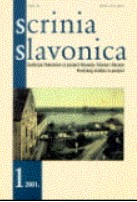
Review of: Josip Parat - La transgression en temps de guerre de l’Antiquité à nos jours, ur. Nathalie BARRANDON, Isabelle PIMOUGUET-PEDARROS (Rennes: Presses universitaires de Rennes, 2021). 270 str. ISBN 978-2-7535-8160-9. Dino Mujadžević - Pavol MALINIAK i Imrich NAGY: Turek na obzore (Z prameňov k uhorskoosmanským vzťahom) (Kraków: Spolok Slovákov v Poľsku, 2013). 245 str. ISBN 978-83-7490-652-4. Milan Vrbanus - Ladislav DOBRICA i Ivana POSEDI: Kronika franjevačkog samostana u Vukovaru: Knjiga I (1722.-1780.). Gradivo za povijest Vukovarsko-srijemske županije županije, knjiga XIV (Vukovar: Državni arhiv u Vukovaru, Franjevački samostan Vukovar i Hrvatska franjevačka provincija sv. Ćirila i Metoda, 2020). XXI + 468 str. ISBN 978-953-7980283. Gabrijela Odobašić - Mirjana REPANIĆ-BRAUN i Mario BRAUN: Spomenik Svetoga Trojstva u Osijeku / Monument of the Holy Trinity in Osijek (Zagreb – Osijek: Hrvatska akademija znanosti i umjetnosti, Zavod za znanstveni i umjetnički rad u Osijeku, 2020). 295 str. ISBN 978-953-347-367-3. Iva Vidović - Katarina HORVAT-LEVAJ i Margareta TURKALJ PODMANICKI: Palača Slavonske general-komande u Osijeku (Zagreb – Osijek: Hrvatska akademija znanosti i umjetnosti, Zavod za znanstveni i umjetnički rad u Osijeku, Sveučilište Josipa Jurja Strossmayera u Osijeku, 2019). 237 str. ISBN 978-953-347-324-6. Josip Lučić - Tužna mladost i žalostna smrt Pere Šestića iz Račinovaca. Sastavio Stančić. 3. izdanje (pretisak), ur. Martina KELAVA (Drenovci: Muzej Cvelferije, 2020). 112. str. + obiteljsko stablo (Obitelj Šestić). ISBN 978-953-48152-3-6. Ivan Milec - Stipica GRGIĆ: Između režimske ideologije i potreba građana: Savska banovina 1929-1939. (Zagreb: Sveučilište u Zagrebu, Fakultet hrvatskih studija, 2020). 878 str. ISBN 978-953-7823-81-8. Ana Rajković Pejić - Stefan GUŽVICA: Prije Tita. Frakcijske borbe u Komunističkoj partiji Jugoslavije 1936.-1940. (Zagreb: Srednja Europa, 2020). 156 str. ISBN 978-953-8281-24-2. Stjepan Bekavac - Ivan TEPEŠ: Hrvatska politička emigracija – HSS (Zagreb: AGM d. o. o., 2021). 464 str. ISBN 978-953-174-528-4. Petra Kolesarić - Osječki zbornik, sv. 36., gl. ur. Marina Vinaj (Osijek: Muzej Slavonije, 2021). 136 str. ISSN 0473-4882.
More...